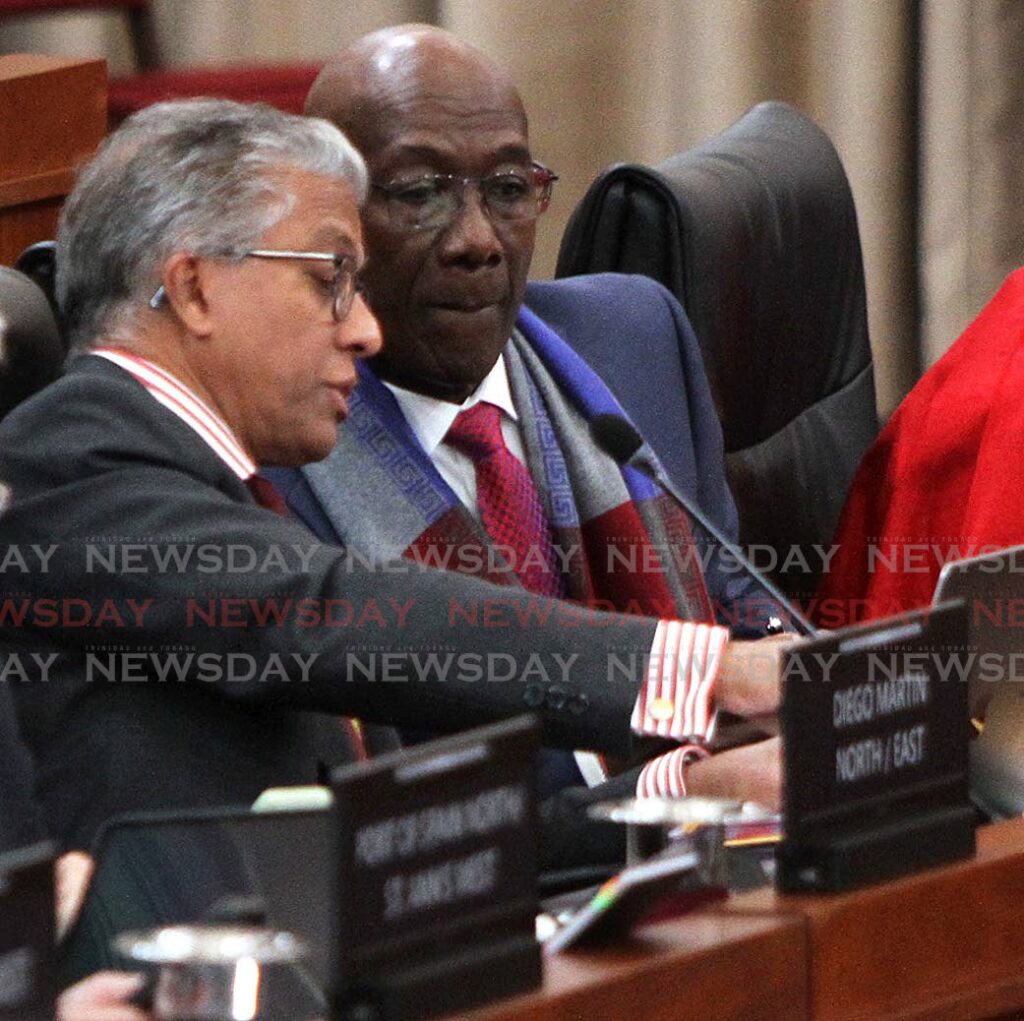House passes preliminary enquiries bill

THE House of Representatives on Wednesday unanimously passed a bill to make amendments to a 2011 act for the abolition of preliminary enquiries in criminal trials.
Attorney General Reginald Armour continued on from last month to pilot Administration of Justice (Indictable Proceedings) (Amendment) Bill, 2023, and after several MPs contributed, gave a wrap-up speech.
In his introduction, he said the bill worked in tandem with measures to reduce court case backlogs, to create divisions of courts, to establish a public defender system, and to improve the case management structure. He promised an amendment in committee stage for the process for search and seizure saying it must be "legitimate, proportionate and necessary."
In his wrap-up, Armour rejected the idea that the bill invaded the privacy of individuals, dismissing such claims as "scaremongering tactics."
He added, "There is no erosion of the DPP's powers."
The AG said the DPP, police, public defenders office and judiciary had all been consulted on the bill.
Chaguanas West MP Dinesh Rambally, during the debate, expressed some human rights concerns about aspects of the bill.
The MP had no problem with the idea of abolishing preliminary inquiries but dubbed the bill a "ragbag" of proposed amendments that he argued led to "uncertainty and confusion." He was concerned about the rights of minors and vulnerable adults under the bill.
Rambally said that while TT had generally followed the United Kingdom's reformist Police and Crime Evidence Act (PACE) which carefully balances the rights of the police, witnesses and suspects, this current bill had failed to do so.
He said the bill failed to state the roles and duties of a person to be defined as an "appropriate adult" who must be present if a vulnerable suspect is being questioned by the police. Rambally said the bill said an "appropriate adult" could include a social worker, welfare worker or justice of the peace (JP.)
He feared this meant that even if a vulnerable suspect wished to exercise his right to silence, a JP could be brought in and questions could then be put to the detainee.
"That runs contrary to the Judges Rules," he added. The measure would also create questions over the admissibility of evidence, he said.
Rambally asked where was the infrastructure to operate the bill.
He used the occasion to call on Attorney General Reginald Armour, SC, to apologise to some 16 attorneys in the DPP's Office for recently complaining about their output. The MP said implementation of the bill's measures would greatly rely on the DPP's attorneys. Saying the Law Association had complained that the infrastructure serving the Office of DPP was now at "a critical stage," Rambally said the Opposition had expected to hear something about this from the AG during the sitting.
Rambally then warned that the bill did not properly address cases where two or more criminals were jointly charged with a crime but for where evidence had been found against only one suspect. "The bill doesn't tell the magistrate how to proceed."
He added that even if the suspects were all charged jointly, they each had the right to be tried separately. "This bill should make that clear."
Rambally also objected to the bill allowing an application for an arrest warrant against suspects merely where "there are grounds for believing" their commission of a crime. He proposed it should be subject to a more rigorous legal threshold of "reasonable grounds."
Rambally considered the bill to be too vague in allowing a magistrate to make decisions "in the interest of justice and fairness to the parties."
The MP urged, "We must give some guidance. Let's get these things sorted out now."
Rambally also lamented other concerns about the administration of justice in TT. He said court cases were thrown out owing to prosecuting police officers missing from court rooms, police station diaries were sometimes missing, and individual officers took witness notes on their cellphones.


Comments
"House passes preliminary enquiries bill"